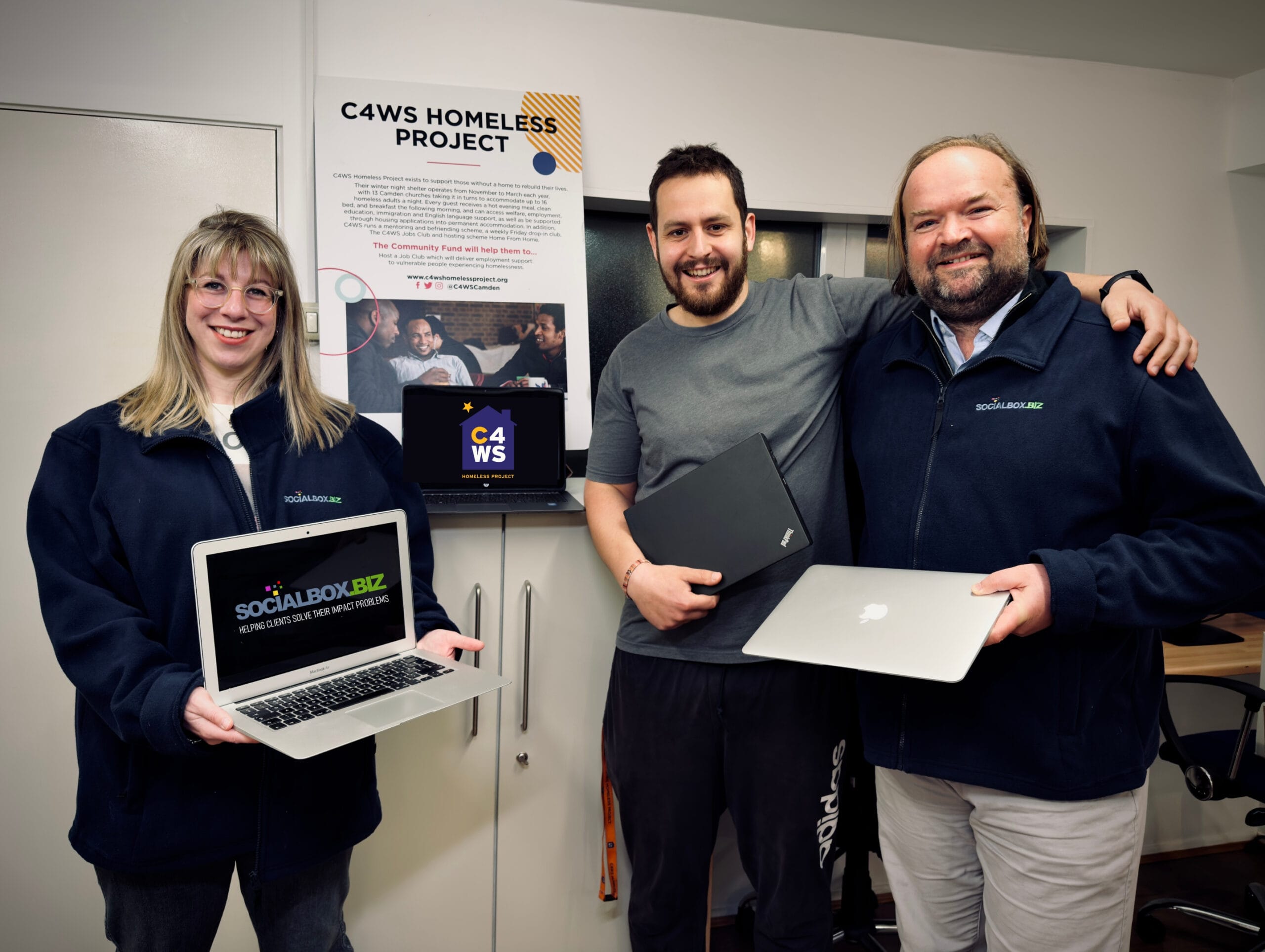The UK’s e-waste mountain is set to grow dramatically, with IT and telecoms waste alone projected to reach just under 55,000 tonnes by 2030. Yet behind this troubling statistic lies a question many corporate IT managers rarely consider: what happens to those thousands of company laptops and desktop computers after they’ve been replaced?
For most businesses, the answer is simple – they call the scrap companies. But a growing movement is challenging this approach, arguing that corporate IT disposal represents a missed opportunity that could benefit businesses, communities and the environment simultaneously.
A Simple Request: Call Before You Scrap
No ads. No tracking.
We don’t run ads or share your data. If you value independent content and real privacy, support us by sharing.
Read More
SocialBox.Biz , a Community Interest Company tackling computer exclusion, has launched a straightforward campaign asking UK IT managers and CIOs to pause before disposing of old equipment. ‘We just ask IT Managers to call us first before calling the scrap companies so we can check what can still be re-used,’ says the team at SocialBox.Biz.
Their ‘Spring Clean Your IT’ campaign, running from 9 June to 30 June this year, offers organisations a chance to redirect laptops, MacBooks and other hardware to vulnerable communities. The process involves securely wiping devices and upgrading them with open-source software that eliminates ongoing licensing costs whilst maintaining security and usability.
The approach reflects broader changes happening across UK business. With new e-waste regulations taking effect from 31 March this year requiring businesses with 10 or more employees to separate waste categories, companies are reassessing their disposal practices.
The Hidden Business Case
The donation route offers practical advantages that traditional scrapping cannot match. Most significantly, it provides a measurable reduction in Scope 3 emissions – the indirect emissions that occur throughout a company’s value chain.
Under current UK regulations, large companies must already report Scope 1 and 2 emissions in their annual accounts through the Streamlined Energy and Carbon Reporting framework. Scope 3 reporting remains largely voluntary, but industry experts expect this to change as the UK government considers adopting International Sustainability Standards Board requirements that would make such disclosures mandatory.
‘Donating tech cuts Scope 3 emissions and can help change lives,’ emphasises SocialBox.Biz. The emissions reduction comes from extending the useful life of equipment that would otherwise require energy-intensive recycling or disposal processes.
For businesses wrestling with ESG targets, this approach offers quantifiable social impact data alongside environmental benefits. Under frameworks like the Corporate Sustainability Reporting Directive , many UK companies are finding they need concrete examples of social contribution to include in mandatory sustainability reports.
Open Source: The Practical Solution
The technology behind these donations relies heavily on open-source software, which provides several advantages over proprietary alternatives. Beyond eliminating licensing costs, open-source solutions offer transparency that allows organisations to inspect code for security vulnerabilities whilst benefiting from community-driven development that rapidly identifies and patches issues.
For recipient organisations, this means access to secure, regularly updated software without ongoing costs. For donor companies, it represents a practical way to extend hardware lifecycles without creating ongoing support obligations or security risks from outdated proprietary software.
The business benefits extend beyond compliance and emissions. Companies that consider how technology can support business sustainability goals through schemes like SocialBox.Biz’s often discover opportunities to optimise their own refresh cycles, potentially reducing future hardware costs.
Regulatory Pressure and Business Reality
The timing of such initiatives reflects broader regulatory changes affecting UK businesses. The Environment Act 2021 has introduced stricter waste separation requirements, whilst Financial Conduct Authority rules now require listed companies to report climate-related disclosures including material Scope 3 emissions under TCFD-aligned frameworks.
For businesses already managing these compliance requirements, IT donation programmes offer a practical way to demonstrate environmental responsibility without requiring major operational changes or significant investment. Companies can schedule collections through organisations like SocialBox.Biz at no additional cost compared to traditional disposal routes.
The approach also aligns with circular economy principles increasingly reflected in government policy and investor expectations. Rather than following the traditional linear model of make-use-dispose, businesses can participate in equipment reuse that keeps materials in productive use longer. This complements broader efforts to identify practical changes you can make to your business to be more eco-friendly.
Making the Business Case
For IT managers evaluating their disposal options, the calculation has shifted significantly. Traditional recycling generates costs and emissions whilst providing limited business benefit. Donation schemes offer equivalent convenience whilst delivering measurable ESG outcomes and potential cost savings on future assessments.
The process typically involves the same logistical steps as commercial disposal – arranging collection, ensuring data security and obtaining certificates of destruction or donation. Donation routes provide additional documentation useful for sustainability reporting and stakeholder communications.
Companies can access case studies and impact metrics through platforms like socialbox.biz , providing the evidence base needed for ESG reporting whilst demonstrating tangible community benefits to employees and customers.
Looking Beyond June
The current SocialBox.Biz campaign runs until 30 June, but the broader question it raises extends well beyond any single initiative. As UK businesses face increasing pressure to demonstrate environmental responsibility whilst managing costs and compliance requirements, the treatment of old IT equipment represents a practical test case.
For decision-makers considering their next equipment refresh, the choice between scrapping and donating has become more than just a disposal decision. It’s an opportunity to address multiple business objectives – environmental compliance, social impact and cost management – through a single, straightforward process.
Companies looking at alternative ways to boost sustainability in the workplace will find IT donation programmes particularly appealing. With SocialBox.Biz highlighting a decade of impact in this space, the evidence suggests that reusing rather than recycling might fit into every UK business’s sustainability planning. The question for IT managers isn’t whether they can afford to donate – it’s whether they can afford not to consider it.
